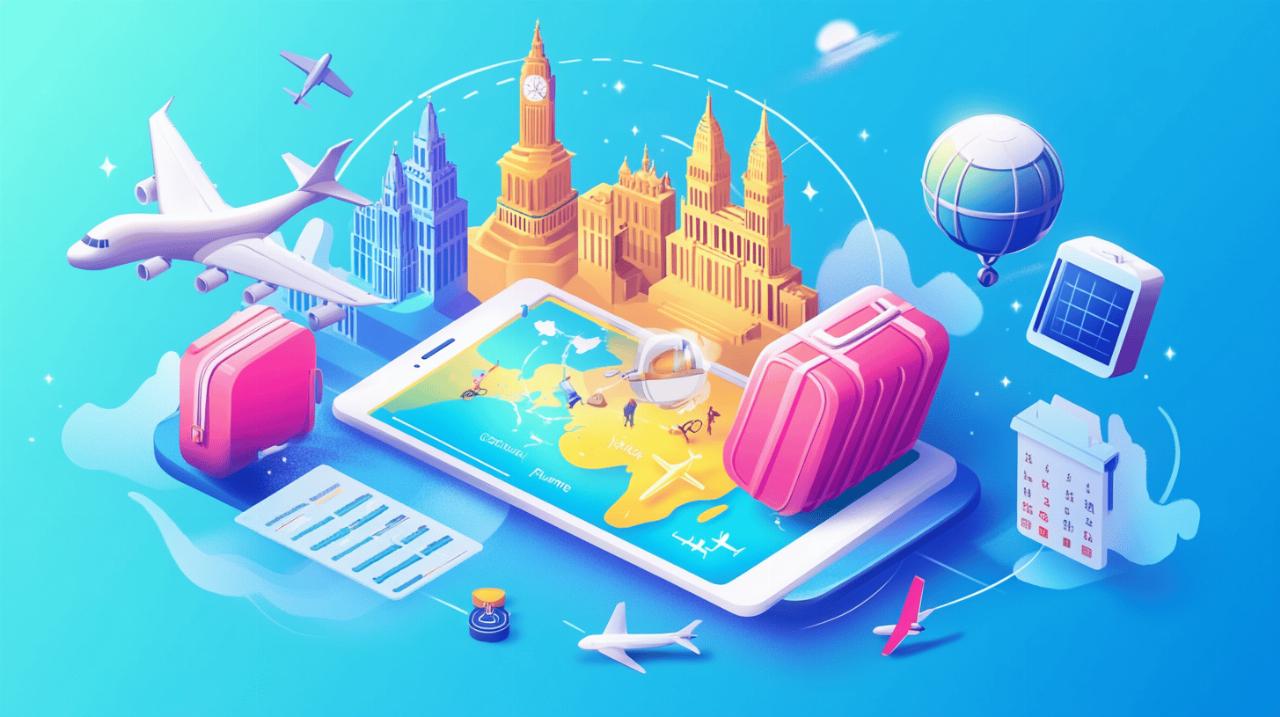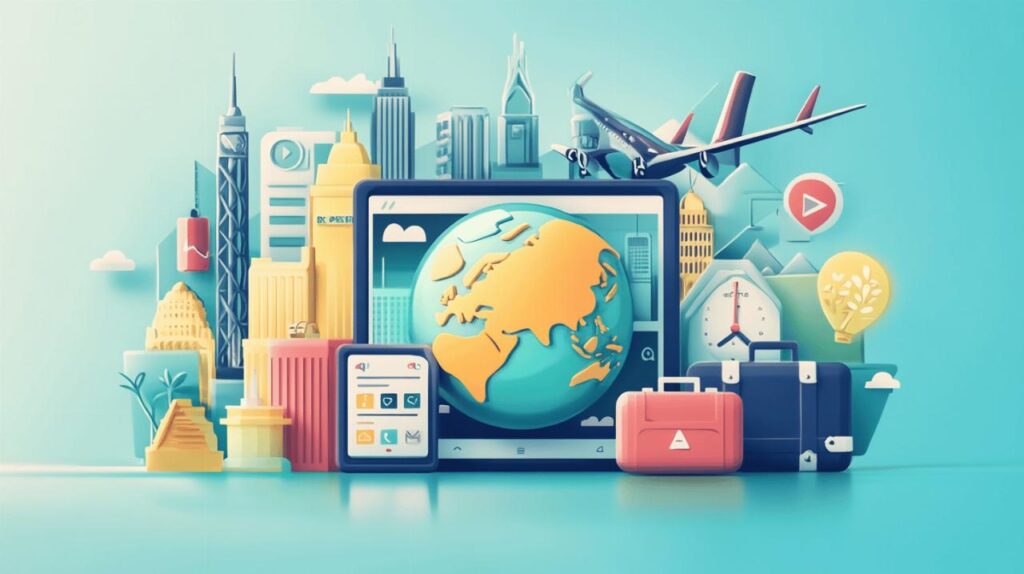Planning a vacation that becomes a cherished memory involves more than just picking a destination and packing a bag. It requires thoughtful preparation, smart decisions, and a willingness to embrace new experiences. Whether you’re dreaming of white sandy beaches, vibrant city streets, or serene mountain landscapes, these expert tips will help ensure your next adventure is truly unforgettable.
Destination research and preparation
Selecting the perfect destination is your first critical step toward an exceptional travel experience. As recommended by travel experts at https://www.travelerseiten.de/, thorough research should encompass not just popular attractions but also practical considerations that can significantly impact your experience. This comprehensive approach sets the foundation for a smooth journey ahead.
Understanding local customs and optimal visit times
Every destination has its unique rhythm and cultural nuances. Take time to learn about local traditions, acceptable behaviours, and common courtesies before arrival. The optimal timing for your visit can dramatically affect your experience. Consider factors like peak tourist seasons, local festivals, and weather patterns. For instance, visiting coastal destinations like Hammamet, Tunisia during shoulder seasons can offer both pleasant weather and fewer crowds compared to the summer rush.
Safety considerations and travel advisories
Safety should never be an afterthought when planning travel. Check official travel advisories from your government regarding your intended destination. These resources provide valuable information about political stability, health concerns, and specific areas to avoid. Remember to verify your passport validity well in advance, ensuring it has at least six months of validity beyond your planned return date and sufficient blank pages for necessary stamps and visas.
Budgeting and financial planning
Financial preparation determines not just where you can go but what experiences you can enjoy while there. A well-planned budget serves as the framework for your entire journey and helps prevent unpleasant financial surprises that could dampen your travel experience.
Creating a comprehensive holiday budget
An effective travel budget accounts for all major expenses including transportation, accommodation, meals, activities, and souvenirs. Remember to include often overlooked costs such as travel insurance, visa fees, airport transfers, and currency exchange fees. Research the cost of living at your destination to set realistic expectations for daily expenses. Many travellers find that allocating a daily spending limit helps maintain financial discipline without constantly worrying about costs.
Money-saving strategies for accommodation and transport
Accommodation typically represents one of the largest portions of your travel budget. Consider alternatives to traditional hotels, such as holiday rentals or boutique guesthouses, which often provide better value, particularly for longer stays. TravelerSeiten highlights budget-friendly options like Hotel Bel Air Hammamet 3* for those seeking affordable summer accommodations. For special occasions, consider unique experiences such as rooms with jacuzzis in Landes, France, which create memorable stays without necessarily breaking the bank.
Booking strategies
Strategic booking can significantly reduce costs while enhancing the quality of your travel experience. The timing and approach to securing your flights and accommodation can make a substantial difference to both your budget and comfort level.
When to secure flights for the best deals
Flight prices fluctuate based on numerous factors including demand, seasonality, and how far in advance you book. Setting up price alerts through services like Google Flights can help you track fare changes across multiple airports simultaneously. Generally, booking international flights between three to six months before departure offers the best balance between availability and competitive pricing. For domestic flights, the sweet spot typically falls between one to three months ahead.
Choosing the right accommodation for your needs
Your accommodation choice should align with your travel style and priorities. Consider factors beyond just price, such as location, proximity to transportation hubs, available amenities, and hygiene standards. TravelerSeiten emphasizes the importance of cleanliness protocols when selecting accommodations, a consideration that has become increasingly significant for travellers. Read recent reviews carefully, paying particular attention to comments about cleanliness, staff responsiveness, and whether the property delivers on its promises.
Itinerary development
Creating an effective itinerary strikes the perfect balance between structure and spontaneity. It ensures you experience the highlights of your destination while allowing room for discovery and unexpected delights that often become the most cherished memories.
Balancing planned activities with free time
Avoid the common pitfall of overscheduling your days. While it may be tempting to pack in as many attractions as possible, this approach often leads to exhaustion rather than enjoyment. A well-crafted itinerary includes dedicated time for rest and unplanned exploration. Consider scheduling no more than one or two major activities per day, especially when visiting destinations with hot climates or those requiring significant walking.
Resources for discovering hidden gems
While guidebooks and travel websites offer valuable information about popular attractions, discovering lesser-known treasures often requires different resources. Local blogs, specialty travel forums, and social media groups focused on your destination can provide insights into authentic experiences away from tourist crowds. Consider connecting with locals through community-based tourism initiatives or guided experiences led by residents who can share their intimate knowledge of the area.
Practical packing tips
Thoughtful packing enhances comfort while reducing stress and unnecessary expenses during your journey. The goal is to bring everything you need without burdening yourself with items that ultimately remain unused.
Climate-appropriate clothing and essentials
Research typical weather conditions for your destination during your planned visit. Pack versatile clothing that can be layered to accommodate temperature variations throughout the day. Consider cultural norms regarding dress, particularly when visiting religious sites or conservative communities. Include a lightweight, water-resistant jacket even for supposedly dry seasons, as weather can be unpredictable.
Luggage organisation and weight management
Organize your belongings using packing cubes or compression bags to maximize space and minimize wrinkles. Place heavier items at the bottom of wheeled luggage to prevent tipping. Check baggage allowances for all flights in your itinerary, as domestic or regional carriers often have stricter limitations than international airlines. Consider doing laundry during longer trips rather than packing additional clothing, particularly when staying in accommodations with washing facilities.
Health and safety measures
Protecting your wellbeing while traveling requires proactive planning and awareness. Taking appropriate precautions before and during your journey helps ensure minor issues remain just that, rather than becoming major disruptions.
Selecting the right travel insurance coverage
Travel insurance represents one of the most important yet frequently overlooked aspects of trip planning. Comprehensive coverage should include medical emergencies, trip cancellation, lost luggage, and emergency evacuation. Review policy details carefully, noting coverage limits, deductibles, and exclusions. Some destinations or activities may require specialized insurance beyond standard policies. Remember that arranging insurance should happen before making significant travel bookings to ensure cancellation coverage applies from the outset.
Managing medical needs whilst abroad
Create a basic medical kit tailored to your destination and personal needs. Include prescription medications in their original packaging along with a copy of the prescription using generic names. Research healthcare facilities at your destination, noting locations of reliable hospitals or clinics near your accommodation. For those with chronic conditions, consider carrying a brief medical history and emergency contact information in the local language.
Communication techniques
Effective communication enhances your travel experience, facilitating deeper connections with local cultures and simplifying practical matters from navigation to dining. Even modest efforts to bridge language barriers are often warmly appreciated by locals.
Basic phrases to learn in the local language
Learning fundamental expressions demonstrates respect for the local culture and often leads to warmer receptions and more authentic experiences. Focus on mastering greetings, please, thank you, numbers, and basic questions related to directions and ordering food. Practice pronunciation using language apps with audio features before your departure. Even when pronunciation feels challenging, locals typically appreciate the effort and goodwill behind your attempts.
Technology tools for translation and navigation
Modern technology offers powerful solutions for overcoming language barriers and finding your way in unfamiliar surroundings. Download offline translation apps that function without internet access. Consider applications that allow real-time camera translation of signs and menus. Similarly, download offline maps for your destination to navigate confidently even when network connectivity is unreliable. These technological aids complement rather than replace basic language skills and cultural awareness.
Staying connected whilst travelling
Maintaining communication capabilities during your travels serves both practical and safety purposes. Thoughtful preparation regarding connectivity needs helps avoid unexpected expenses and frustrations.
Mobile options for international communication
Research mobile connectivity options before departure to avoid excessive roaming charges. Consider purchasing a local SIM card upon arrival for cost-effective data and calling capabilities. Alternatively, international travel plans from your home provider might offer convenience for shorter trips or multi-country itineraries. Regardless of your approach, inform important contacts about how and when you can be reached during your journey.
Digital security whilst using public networks
Protecting your digital information requires heightened vigilance when traveling. Use a virtual private network when connecting to public WiFi networks in hotels, cafes, or airports to encrypt your data transmission. Avoid accessing sensitive accounts like banking on shared computers. Consider using a travel-specific email address for bookings and confirmations to minimize exposure of your primary accounts. These simple precautions significantly reduce the risk of compromised information disrupting your travel experience.

